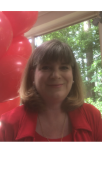Three months ago life as we had known it changed. Schools and church buildings closed. Stores and businesses shut down. Homes became offices for many. We became even more aware of the “front line” workers in our communities and the risks they take to keep basic services in place.
Words and technology platforms that we used occasionally or hadn’t heard of before became part of our daily language. Many faced the realities of virtual worship: to stream or to record? Instrumental music or vocals? What tools do we need to pull it off?
Decisions were made quickly as we mustered our creative energies, best educational practices and theological background to do what we could under the circumstances.
Engaged as we are in educational ministry, it is time to practice what we teach. It’s time to make time to reflect on what we are learning and to schedule regular time for reflection in the coming months. It’s also time to build in time for the ongoing assessment we know is a part of leadership and sound practice. “Under the circumstances,” this time of disruption will extend for the foreseeable future. We invite you to engage in theological reflection and spiritual practices that foster discernment during this time of ongoing adaptation, flexibility and thoughtful response based on what is faithful to the Gospel as we know it.
We offer some questions to get you started. Ask them of yourselves. Ask those with whom you serve- staff, church councils, age/stage ministry leaders and the like.
The process of assessment can be as simple as these two questions: What’s going well? What might we do differently?
Too simple, you say? Look over this list. Use what is helpful. Adapt based on your context.
1) What are we learning during this time of extended disruption from our buildings and routines?
2) How are we reaching out to leadership, your participants, of all ages/stage?
3) What have we tried that didn’t work so well? What adjustments were made? Why?
4) What are we discovering we can “do without” now and when restrictions are eased? What do we want to remember, to come back to?
5 What risks are we taking? What are we learning as we take them?
6) Who is involved in the decisions/planning? Who is left out?
7) How are we planning for the coming months, year or more of educational ministry?
What would you add? What are you learning? We’d love to learn along with you.
 The Rev. Dr. Sarah F. Erickson is a clergy member of the Presbytery of S. Alabama serving as Director of Lifelong Learning at Columbia Theological Seminary in Decatur, GA
The Rev. Dr. Sarah F. Erickson is a clergy member of the Presbytery of S. Alabama serving as Director of Lifelong Learning at Columbia Theological Seminary in Decatur, GA
 Barbara Benton Flynt serves at Director of Christian Education at The Brandermill Church in Midlothian, Virginia. She is a Certified Christian Educator in the PC(USA).
Barbara Benton Flynt serves at Director of Christian Education at The Brandermill Church in Midlothian, Virginia. She is a Certified Christian Educator in the PC(USA).
Both are Steering Committee Members for Hope4CE
